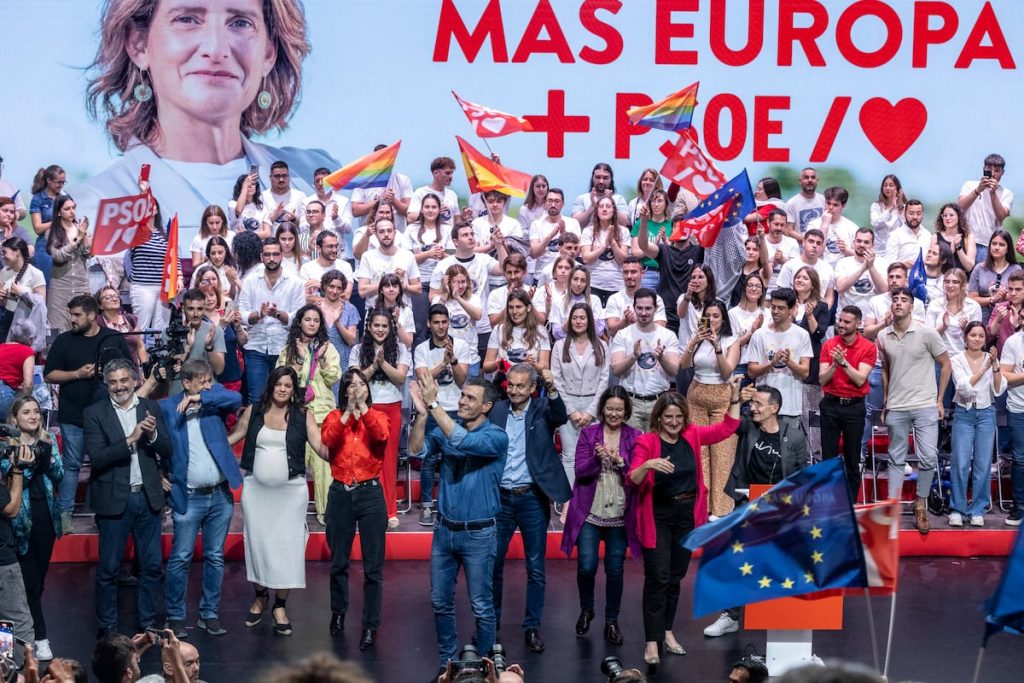On Friday, campaign events for the upcoming European elections are taking place. In Murcia, the leader of the Popular Party, Alberto Núñez Feijóo, participated in an event alongside the president of the PP of the Region of Murcia, Fernando López Miras. Vox leader, Santiago Abascal, visited Gijón to support the party’s candidate for the European elections, Jorge Buxadé. Feijóo also shared his stance on potential alliances with the far right in Europe, highlighting differences with the Italian Prime Minister, Georgia Meloni, whom he believes is not comparable to other far-right parties in Europe. The non-permanent investigation committee in the Balearic Parliament regarding the purchase of medical supplies during the pandemic has summoned former minister José Luis Ábalos and his advisor, Koldo García, for questioning.
El País offers the latest political updates for free. However, readers who want to support their journalism can subscribe to their platform. Feijóo’s comments on potential alliances with the far right in Europe have sparked interest and discussion. He emphasized the differences between Georgia Meloni’s party in Italy and other far-right parties in Europe that his party does not wish to ally with. Feijóo’s statements show a willingness to engage in dialogue and strategic decision-making when it comes to forming alliances in the European Union. These discussions are crucial as the European elections approach, and parties are looking to strengthen their positions and alliances in the European Parliament.
The campaign events in Murcia and Gijón highlight the active participation of political leaders in the upcoming European elections. With different parties mobilizing their bases and candidates, the competition is intense as they seek to secure votes and support. Feijóo’s appearance in Murcia and Abascal’s visit to Gijón demonstrate the importance of these regions in the electoral landscape. The presence of party leaders in key areas signals the significance of these elections for the future of European politics and governance. As the campaign intensifies, parties are working to attract voters and form alliances that will shape the European Parliament in the coming years.
The investigation into the purchase of medical supplies during the pandemic in the Balearic Parliament underscores the importance of transparency and accountability in public procurement processes. Summoning former minister José Luis Ábalos and his advisor, Koldo García, for questioning shows a commitment to uncovering any potential irregularities or misconduct in the procurement of essential supplies during the health crisis. The scrutiny of government actions during the pandemic is essential to ensure that public funds are used effectively and efficiently to address the needs of the population. By examining the decisions and processes involved in the purchase of medical supplies, the investigation aims to promote transparency and integrity in public procurement practices.
Overall, the political events and investigations taking place reflect the dynamic and complex nature of European politics. With the upcoming European elections, parties are actively campaigning and forming alliances to secure votes and influence in the European Parliament. The statements made by Feijóo regarding potential alliances with the far right in Europe demonstrate the strategic calculations and considerations that parties are making in the lead-up to the elections. The investigation into the purchase of medical supplies during the pandemic highlights the importance of oversight and accountability in public procurement processes. As these events unfold, the future of European politics will be shaped by the decisions and actions of political leaders and institutions.


